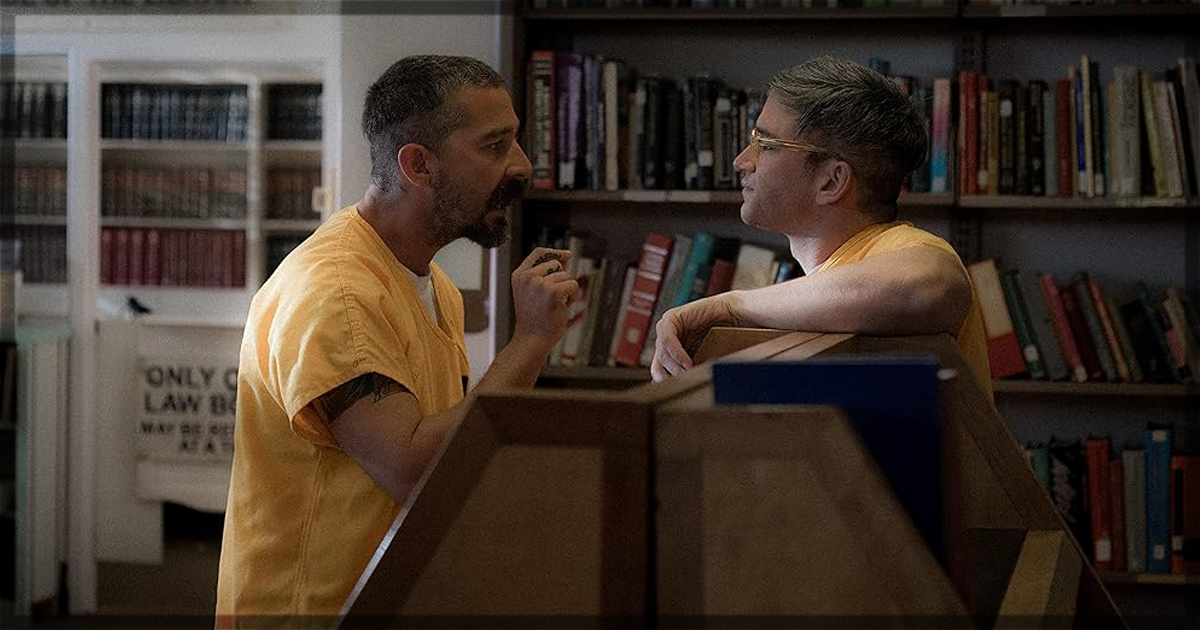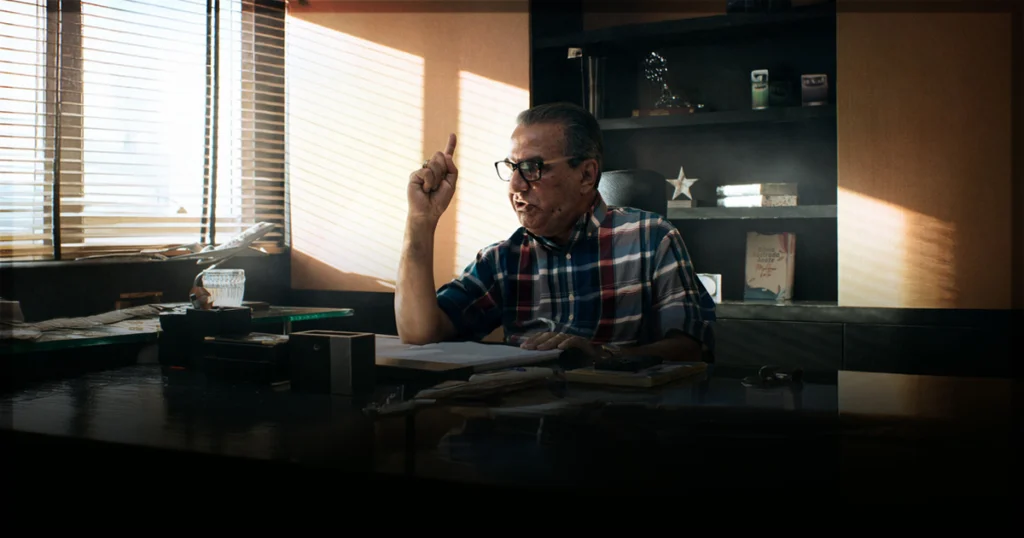Pulitzer Prize-winner David Mamet is no stranger to filmmaking. Besides his iconic writing efforts like Glengarry Glen Ross and Wag the Dog, Mamet is also no stranger to directing. With a focus primarily on short films and TV movies, he has directed relatively few theatrical features. Granted, not all of those features have been met with unbridled praise, but at least they spark a conversation. His latest self-financed film, Henry Johnson, hopes to continue the unique trend for the filmmaker and writer. That leaves the sole question: Is Henry Johnson a good movie? Admittedly, that is a hard question to answer.
Henry Johnson feels like a movie from a very specific era of old-school dramas. For some, that could be more than enough to deliver the desired results. Whereas others could be left numb by the lyricism in the conversations. Before going any further, it’s best to describe the plot of the film. Henry Johnson tells the story of a lawyer and ordinary man named Henry Johnson (played by Evan Jonigkeit). When Henry unknowingly admits to a crime, he is thrown into a tale of darkness and moral depravity. This includes the enigmatic Gene (Shia LaBeouf), who “mentors” Henry down a path of rage and pain.
To clarify, Henry Johnson is not a thriller, but a spoken drama. Based on the play of the same name, it’s a film that requires work to watch or enjoy. Mamet uses words to tell the story instead of giving specific actions. Every conversation is designed to maintain the audience’s attention, divided into three distinct sections. Each one builds upon the previous, creating a verbal explosion by the third act. Such a conceit makes Henry Johnson feel like a better idea than an actual movie. The pieces are each interesting in their own right, but don’t congeal in ways many may hope.
For Henry Johnson to work, viewers need an engaging cast. Limited to four central performers, that is where Henry Johnson really soars. That does not account for the central performance by Jonigkeit. The lead performance makes the film a frustrating watch. To make something clear, I can’t say Evan Jonigkeit delivers a bad performance. Instead, he serves as a conduit for the audience. He’s a difficult character to get a read on, making it hard to emotionally connect with him. He exists as someone for opinions and ideas to be grafted onto, which is an interesting concept. In its execution, Henry is just not as engaging a central character. Viewers dislike the situation he’s in, but never truly care about him as one might hope. It’s the supporting performances that help to keep the film afloat and make it something unique.
Character actors Dominic Hoffman and Chris Bauer have a tough job in their performances. They have to be more than just “characters” but pieces in Henry’s journey into moral ambiguity. Both actors exist to break Henry into this world and end his tale of emotional depravity. Each actor perfectly handles the lyricism of the dialogue, selling both the good and the bad. In moments, said dialogue can lead to a form of self-parody instead of thought-provoking verbiage. Any character actors of a lesser caliber would make this dialogue sound like nails on a chalkboard. But these actors sell the dialogue in a way that feels earned and engaging.
The real standout of the piece goes to Shia LaBeouf’s performance as Gene. LaBeouf’s rage as an actor shines with Mamet’s writing style. The performance walks a fine line between seriousness, moral depravity, and dark, understated humor. Gene is incredibly cynical and almost serves as an infection for Henry’s mind. In that way, LaBeouf exists as a hypnotic screen presence, even when viewers struggle to understand his poetic speech. He’s a voice of dark morality that summarizes the essence of the film.
Without LaBeouf, Henry Johnson would fall apart at the seams. He exists as more of a character, but in a world of depravity. It’s the strongest section of the film, clearly pivoting Henry into a villain. It’s exciting, scary, and arguably the film’s most believable section in the story. The heightened dialogue sells Gene’s anger at society. It’s Mamet forcing audiences to ask, should we just burn it (the world itself, metaphorically speaking) all down? There’s a twisted darkness to it that makes it all the more compelling to watch. It makes one wonder if the film had pushed further into that darkness, it would be all the more interesting. It feels truest to Mamet’s words, while also entertaining through LaBeouf’s animated portrayal
Henry Johnson cannot be called a bad movie by any means. It’s a story riddled with ideas and statements on the world itself. The problem with those ideas is that they don’t mix as one may hope. What’s undeniable is that without the supporting performances, Henry Johnson simply wouldn’t work as a film. Henry, as a character, is not as interesting as one may hope. He’s nothing more than a sounding board for other characters to vent about society’s problems. Those many ideas certainly make Henry Johnson an interesting watch. Unfortunately, despite the numerous ideas, the film feels like nothing more than a good concept. Even with a good concept, the finished product is nothing more than ideas without a strong center.
Henry Johnson is available to stream or purchase online.
Learn more about the film at the official website for the title.
You might also like…
‘Apocalypse in the Tropics’ Documentary Film Review


